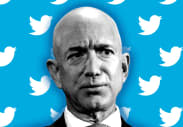Boeing Co.
BA,
The aerospace and defense giant will use the new Baa2- to BBB-rated debt financing to repay the bulk of its $13.8 billion draw on a two-year loan facility, according to a person with direct knowledge of the dealings.
The financing gives Boeing more breathing room as it looks to turn the page on a difficult chapter, following the twin shocks of limited air travel during the pandemic and the nearly two-year grounding of its 737 Max jet program after two deadly crashes.
As part of its turnaround plans, air safety authorities in the U.S., Europe and elsewhere in recent months have granted green lights for its 737 Max commercial jets to return to the skies.
“Today’s successful bond offering is another prudent step for us as we carefully manage liquidity through the global pandemic, prepare for a market recovery and transform our business for the future,” said Greg Smith, Boeing chief financial officer, in a statement to MarketWatch.
“The solid demand for this bond offering reflects the continued confidence the market has in our long-term future.”
Earlier Tuesday, CreditSights analysts said they thought the financing could reach $14 billion, which would match Apple Inc.’s
AAPL,
Read: Apple sees blizzard of demand for $14 billion debt deal
While pricing on Boeing’s new bonds ended up tightening from initial levels floated by bankers, a cost savings for the issuer, the total size of the debt deal was just shy of $10 billion, according to a final pricing update viewed by MarketWatch.
Its shortest $1.325 billion two-year fixed-rate class priced at 105 basis points over U.S. Treasurys
TMUBMUSD02Y,
Its longest and biggest $5.5 billion class of five-year fixed-rate notes cleared at 175 basis points above Treasurys to yield about 2.2%, after initially being pitched to investors in the area of 195 basis points over the benchmark.
Investors earn a spread, or premium, on corporate bonds above Treasury rates. That level often is tied to where the company’s outstanding debt trades in the market, as well as investor views of the issuer’s perceived default risk.
Overall, U.S. investment grade corporate bond spreads have narrowed dramatically since last March, when turmoil from the pandemic first shook market confidence and prompted the Federal Reserve to roll out a bazooka of stimulus to keep credit flowing.
At last check, the benchmark ICE BofA U.S. Corporate Index option-adjusted spread was near 103 basis points over Treasurys, down from a pandemic high of 401 basis points on March 23, 2020. Low borrowing costs have provided U.S. companies with a financial lifeline to trillions worth of debt during the pandemic.
Boeing last week reported a fourth-quarter loss that widened to more than $8 billion, missing expectations by a wide margin, while revenue fell a little less than forecast, amid strength in its defense, space and security business.
Earlier this month, it also reported a 59% drop in its 2020 commercial jet deliveries from a year prior, amid a plunge in demand for wide-body jets used for long-haul flights during the COVID-19 pandemic.
Shares of Boeing closed 2.6% higher on Tuesday, as equity investors turned their focus to the prospect of more fiscal aid from Congress and the vaccine rollout, following the recent frenzy of retail trading in heavily shorted stock. The S&P 500
SPX,
Read: Boeing is ‘COVID-19 recovery play,’ Morgan Stanley says







